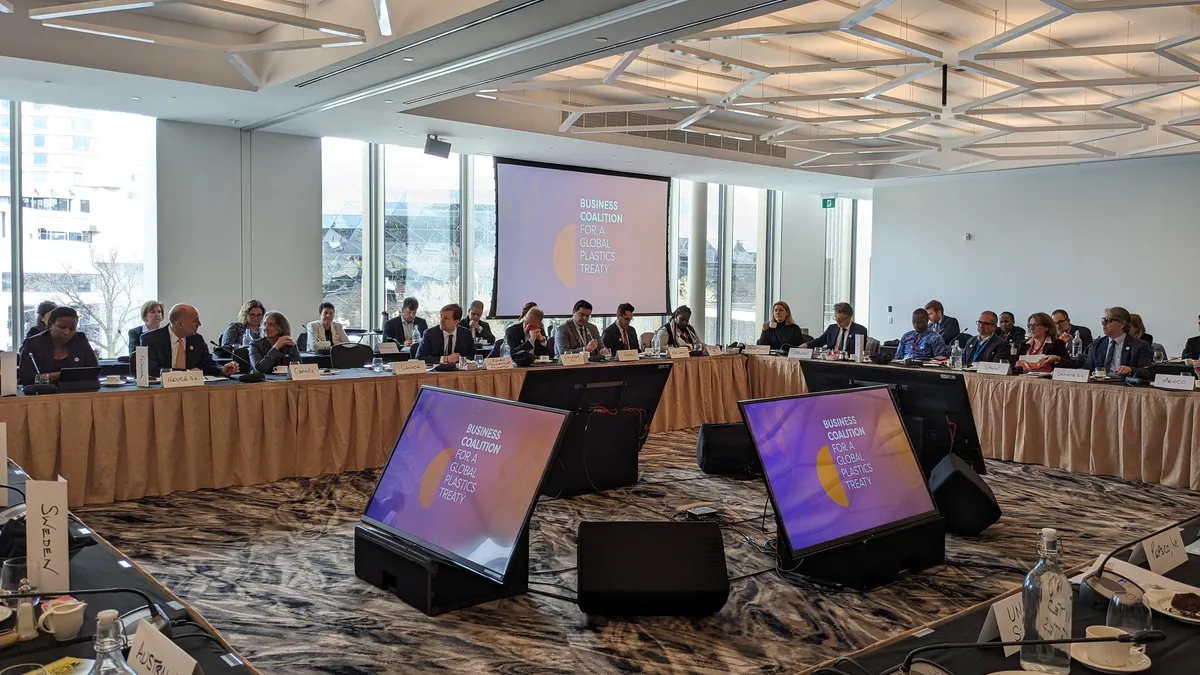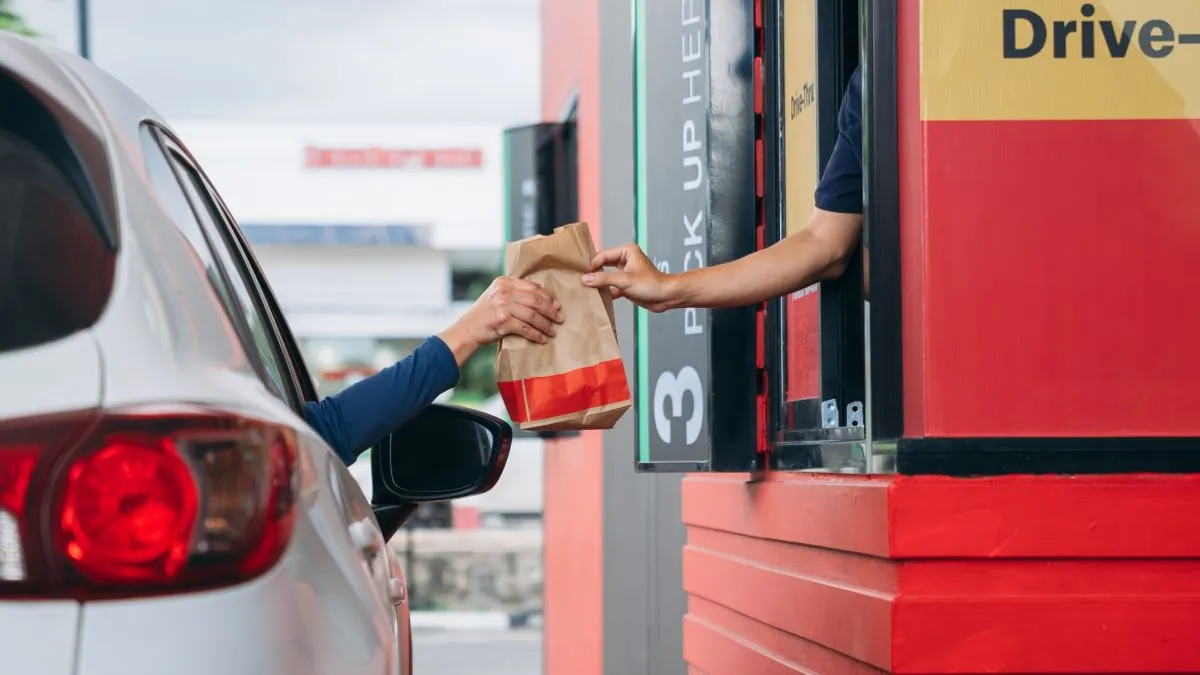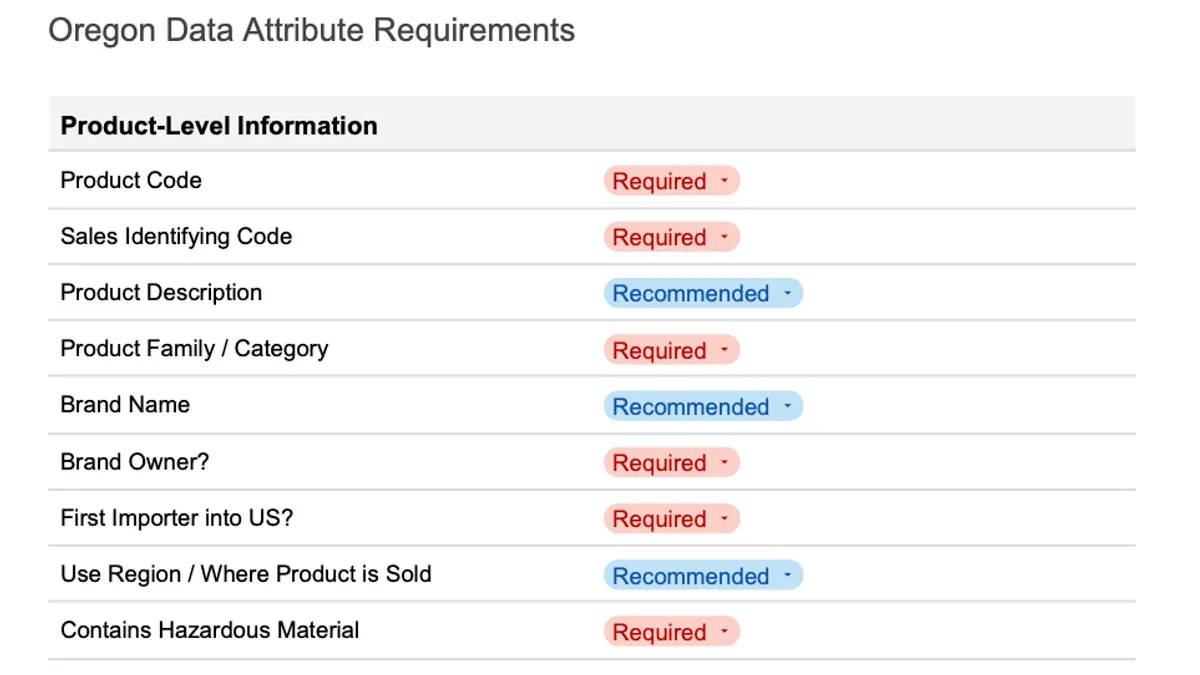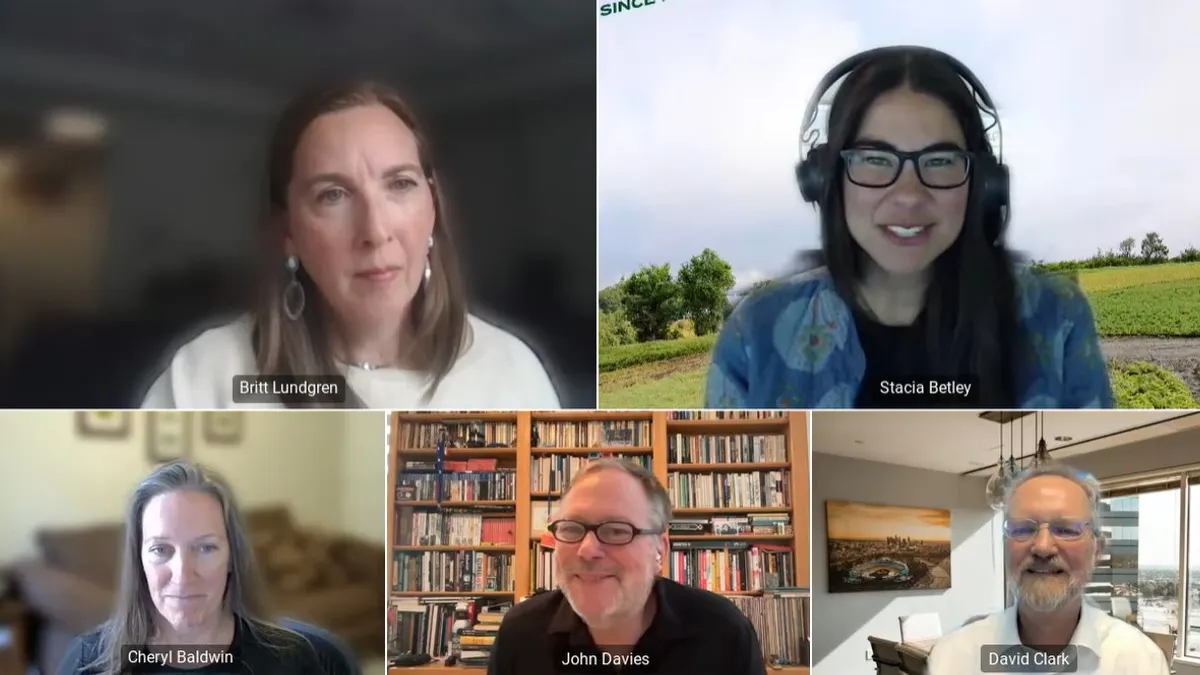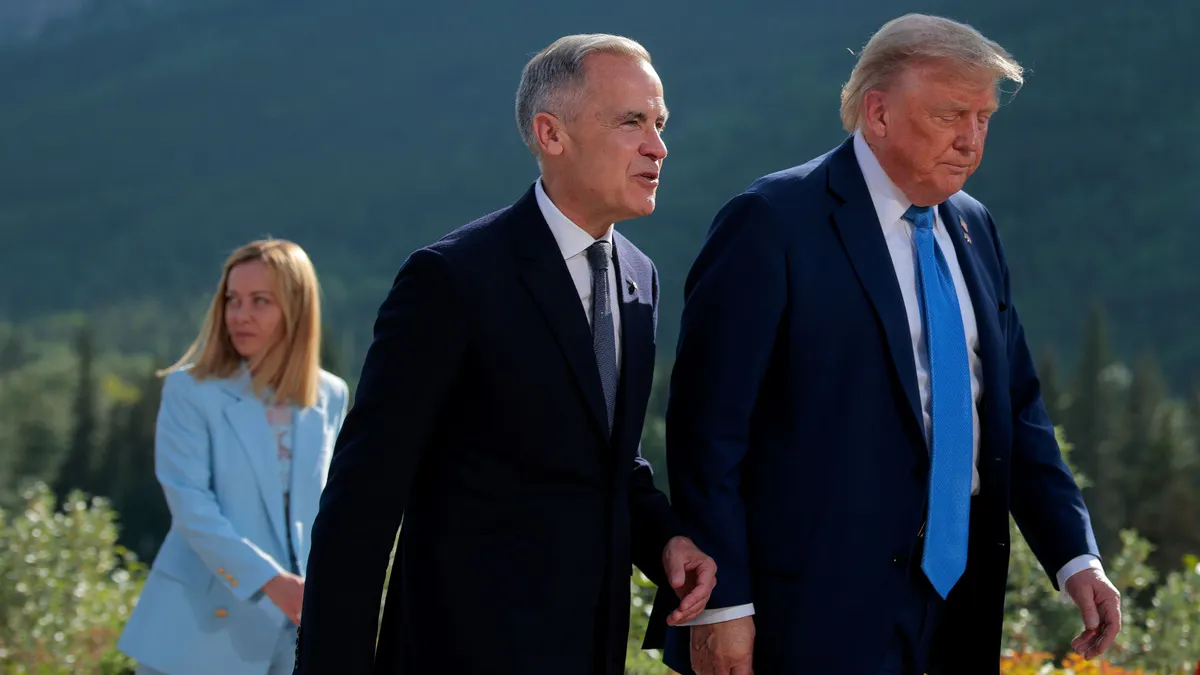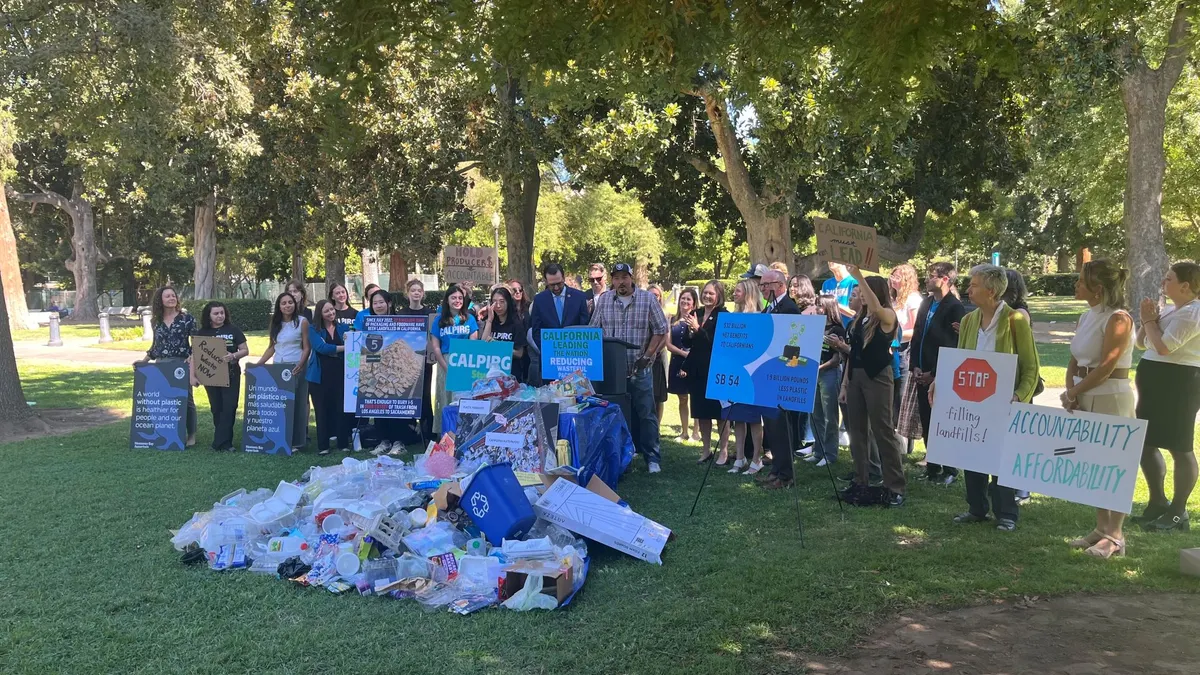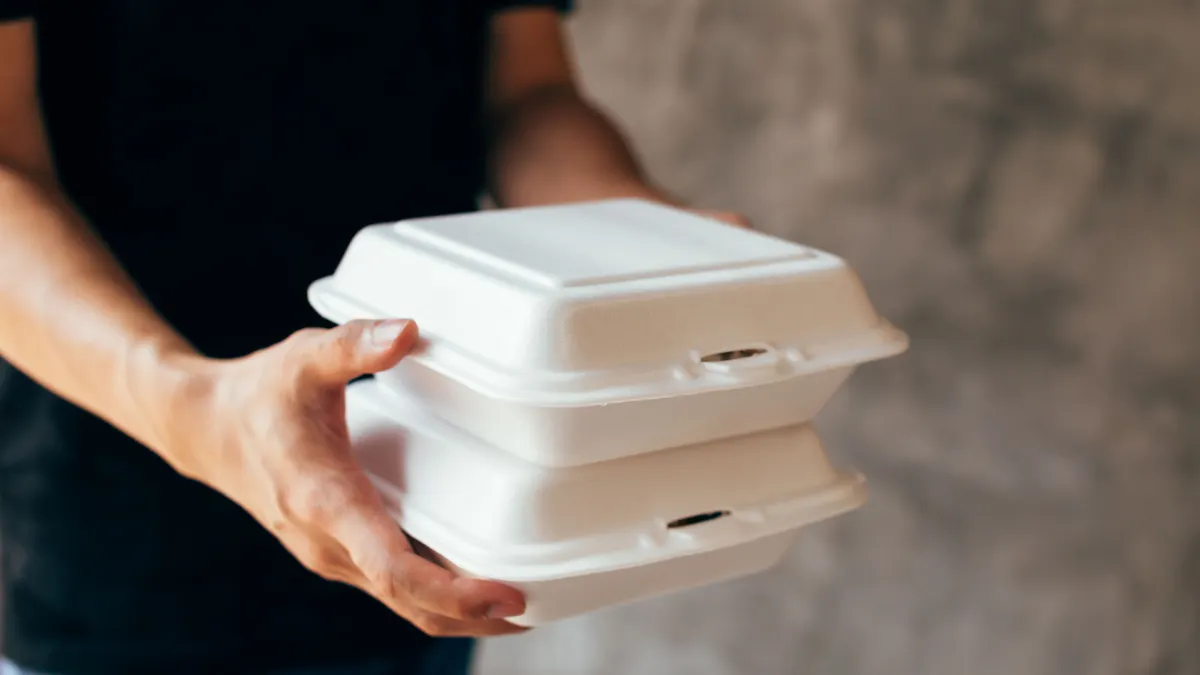The Biden administration now plans to support targets to reduce plastic production in upcoming negotiations for an international plastics treaty, marking a notable shift from its position in four rounds of prior talks.
Additionally, the administration is now open to negotiating a potential list of chemicals to phase out as well as criteria for developing a potential list of problematic or avoidable plastic products. The administration’s overall shift, first reported by Reuters, was confirmed by a State Department spokesperson.
The fifth round of treaty negotiations via an Intergovernmental Negotiating Committee will take place in Busan, South Korea, later this year.
The United Nations-convened process to negotiate a global plastic treaty among hundreds of countries has been complex, with four INC meetings since 2022 and few tangible outcomes. This shift by the U.S., ahead of what is expected to be the final session, is viewed as a notable development.
It comes shortly after the Biden administration released a report recommending efforts to reduce single-use plastic in federal operations by 2035 and calling for a “goal to reduce the global production and consumption of virgin plastics.”
Previously, the U.S. had been more aligned with countries such as China and Saudi Arabia that did not support language calling for reduced plastic production. Instead, those countries are more focused on downstream areas such as mitigating plastic pollution and enhancing recycling systems. This was at odds with more than 60 countries that formed a “high ambition” coalition, co-chaired by Norway and Rwanda.
Ahead of INC-5, some of these countries aligned with outside groups (including the Ellen MacArthur Foundation and WWF) to directly support reducing “production of primary plastic polymers.” While the U.S. hasn’t formally supported this declaration, known as the “Bridge to Busan,” multiple sources say the Biden administration’s new position is consistent with that language.
"I think this shift could be a game changer for the whole plastic treaty negotiation,” said John Hocevar, campaign director for Greenpeace USA Oceans. “The shift in U.S. position will make it more difficult for the blocking countries to continue to oppose meaningful action, and it will embolden other countries to take more ambitious approaches."
The American Chemistry Council had a different reaction.
“This is a lose-lose situation,” said CEO Chris Jahn in a statement. “American jobs will be at risk of being outsourced. The cost of goods is likely to rise globally, impacting those least able to afford it. And the U.S. negotiators’ influence at the next round of negotiations will be significantly diminished since other countries know such drastic positions are unlikely to secure the 67 votes needed in the Senate to join the agreement.”
ACC went on to say if the Biden administration wants to meet its environmental goals then “the world will need to rely on plastic more, not less.” The Plastics Industry Association raised similar concerns.
“The plastic industry is the seventh largest manufacturing industry in the United States and employs one million people. With this decision, the White House has turned its back on Americans whose livelihoods depend on our industry, as well as on manufacturers in all sectors that rely on plastic materials,” said CEO Matt Seaholm in a statement that also questioned Senate approval.
Environmental groups say it’s premature to raise concerns about if or how Senate approval would be required until a treaty is complete and this fall’s election outcome is known. They also note that international companies could still be affected if other major countries approved the treaty.
The ongoing treaty process has also elicited views from packaging manufacturers and CPGs, with many endorsing a Business Coalition for a Global Plastics Treaty that was convened by EMF and WWF. That coalition didn’t have a reaction to this week’s news, but WWF heralded the shift.
“We know that the U.S. is the largest producer of plastic and has a major role to play in ending the plastic pollution crisis,” said Erin Simon, vice president and head of plastic waste and business at WWF. “We are excited to hear that the U.S. government is supportive of exploring some of the fastest paths to an ambitious global treaty, including targets that reduce plastic production and alignment with the rest of the world on phasing out harmful chemicals and products.”
The Innovation Alliance for a Global Plastics Treaty, which includes smaller packaging startups, also said it “welcomes the developments” and said that this gave “fresh momentum” toward their goals.
“Global targets are not just aspirational benchmarks; to achieve them we require innovation — targets are a catalyst for existing solutions in alternative materials, circular economy, and reuse-refill sectors,” said a spokesperson via email.
This week’s news still leaves many questions about how the U.S. will advocate for these policies.
"The U.S. is known for a very thoughtful and independent approach to these negotiations, so I think we'll all be waiting to see what comes next,” said Anja Brandon, associate director of plastics policy at the Ocean Conservancy. “Do they put out any position statements ahead of INC-5, do they share anything with the secretariat?”
Groups such as Greenpeace have previously called for a 75% cut to global plastic production by 2040. Figuring out how to measure that will be a key point of discussion.
Brandon said measurement will be complex, but cited the Paris climate agreement’s 1.5 degree C target as an example. She noted that reporting requirements under the growing number of extended producer responsibility laws are a step in this direction and said multiple approaches could work.
"I think getting to a place where every country has more transparent and detailed information about plastics and packaging in general would be incredibly helpful toward achieving the goal of this treaty,” she said.
Negotiating criteria or specifics for a possible list of harmful chemicals is similarly complex as many thousands are currently in use. Hocevar said his group doesn’t yet have a specific position on which chemicals could go on the list, but cited concerns about health effects from certain plastics and said “transparency is a vital first step" in terms of what this could mean for the supply chain.
Figuring out criteria for a potential list of problematic or banned plastic products is also considered difficult, including questions about whether countries would come up with their own lists. The International Council of Chemical Associations has previously said it does not support the treaty including a specific list of banned products and would prefer to see a more nuanced country-level approach that also considers other options.
In 2023, WWF released a report suggesting certain items that could go on such a list as part of a treaty. The U.S. Plastics Pact, part of a global network, also published a list of items its activators pledged to phase out. It also called out chemicals such as types of PFAS, polyvinyl chloride, polystyrene and others.
INC-5 is scheduled to occur Nov. 25 to Dec. 1.



